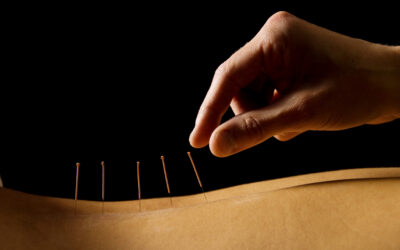The broad curriculum offered by National University of Health Sciences (NUHS) provides chiropractic medicine students exposure to topics they want to study in more depth. Diplomate degrees, obtained through various professional certification boards under the American Chiropractic Association (ACA), allow students to pursue these interests and, eventually, use this advanced knowledge within their future practices. Diplomate degrees are a form of board certification that reflects advanced knowledge and training in a particular field.
NUHS faculty hold a wide variety of Diplomate degrees. As part of the latest Panel Presentation, an event held every trimester at the NUHS-Florida site, faculty members discussed how their specific specialty training benefits their practice and their patients. In this blog, you’ll discover the advantages of the various Diplomate degrees available to students before and after graduation.
1. Diplomate in Sports Medicine (American Chiropractic Board of Sports Physicians)
Faculty Member Tom Young, DC, DACBSP, obtained his diplomate in sports medicine shortly after graduation. Not only did his patient base increase, the level of athlete seeking out his care increased too.
“In my clinical practice, [the board certification] afforded me the opportunity to work with professional teams. It’s given me the opportunity to work in a sports fellowship program at a hospital and has helped me to develop network connections,” he said.
Dr. Young added that when DCs obtain a Diplomate, they become family with a group of other providers who often work together to enhance patient benefits and results.
2. Certification/Diplomate in acupuncture (National Certification Commission for Acupuncture and Oriental Medicine, Council of Chiropractic Acupuncture)
DC students interested in acupuncture can pursue a certification, master’s degree, or Diplomate in acupuncture. Earning your acupuncture certification requires 100 hours, and an additional 200 hours for the Diplomate is required. In some states, dry needling can be performed without additional qualifications but is limited to trigger point therapy with added manipulation.
According to NUHS Faculty Member Brett Martin, DC, MPH, MSAc, the resident NUHS-FL expert on the topic, students who take the additional training learn different theories of acupuncture, including cupping, ear acupuncture, electrical acupuncture, etc. His Master of Acupuncture degree helped differentiate him from other practitioners when he first started practice and gave him another tool in his treatment arsenal.
“It really completes you as a practitioner,” he said.
Dr. Martin added that acupuncture is especially useful for internal medicine disorders, such as chronic obstructive pulmonary disease (COPD), high blood pressure, weight loss, addiction issues, and mental health.
“Acupuncture is a huge asset, and it really complements using nutrition and herbs,” he said.
3. Diplomate in Internal Medicine (American Board of Chiropractic Internists)
Faculty Member Michelle Jourdan, DC, DABCI, who also sits on the ACA Council on Diagnosis and Internal Disorders, said her Diplomate really reinforces the holistic and diagnostic education students receive from NUHS.
It allowed her to fully understand all the organ systems so she could approach each patient in a complete manner, rather than just evaluating one organ system at a time. She learned advanced techniques of evaluating the patient through clinical labs and other diagnostic workups to support the wellness of the entire body. This enabled her to diagnose even the most complicated cases, offering challenging patients an opportunity to get well.
“The more in-depth and complicated the cases that started coming to me, the more my practice started expanding,” she said.
Students can begin the 300 credit hour program in their 5th trimester and complete it in 5 years.
4. Diplomate in Nutrition (Chiropractic Board of Clinical Nutrition, American Clinical Board of Nutrition)
Diplomate degrees in nutrition can be obtained through either the Chiropractic Board of Clinical Nutrition or the American Clinical Board of Nutrition. The good news is those who complete the 300 credit hour coursework are able to sit for both board exams, allowing them to gain both credentials.
Dr. Jennifer Gantzer, DC, MS, DACBN, FACN, an Assistant Professor on the Florida campus, sits on the American Clinical Board of Nutrition Exam Committee and serves as Director of the ACA Council on Nutrition Mentorship program. Dr. Gantzer remarked that beyond advertising your expertise and improving your clinical approach, a Diplomate degree also provides networking opportunities at annual symposiums and the credentials to sit on important professional boards.
While both nutrition diplomates require different sets of continuing education (CE) requirements, the benefits typically outweigh the costs.
“That sounds like it could be tedious but that is where we keep our expertise fresh,” she said.
According to Dr. Gantzer, the Diplomate gives DCs the power to change a lot of lives through functional integrative medicine. Sometimes, it simply adds a nutritional component toward rehabilitating musculoskeletal cases.
“You’re doing the rehab, you’re doing the chiropractic, but you still need to get their bodies to optimally heal. That’s where a lot of the clinical nutrition comes into play,” she says.
5. Diplomate in Radiology (American Chiropractic Board of Radiology)
The Diplomate in radiology requires a full-time 3-to-4-year residency that involves on-the-job training and a structured curriculum that goes through every body system. According to Jan Martinson, DC, DACBR, the training chiropractic radiologists receive is exactly the same as their medical radiologists.
With the radiology Diplomate, DCs are able to become a practicing radiologist who consults on patient imaging with all other types of healthcare providers. Chiropractic radiologists own imaging centers, some are in full-time clinical practice seeing patients, and others simply perform radiology consults.
6. Diplomate in Orthopedics (American College of Chiropractic Orthopedists)
Greg Priest, DC, DABCO, has always been passionate about orthopedics. When he obtained his Diplomate, he quickly ended up getting many referrals from physicians, hospital emergency rooms, and large orthopedic groups.
“It ended up being fairly lucrative, but that’s not why I did it,” he said.
Dr. Priest attended the orthopedic program that used to be offered through NUHS, a program that one of his mentors also attended. The 360-hour program trained him in advanced orthopedic care.
He stressed the importance of being a lifelong learner to keep up with new medical knowledge. Dr. Priest still enjoys attending orthopedic conferences, which provide great opportunities for continuing education.
He also reminded students that to work at a federally qualified health center or federally subsidized community health center in some states, you must have a specialty and be specialty certified.
7. Diplomate in Neurology (American Chiropractic Neurology Board)
Students who earn their Diplomate in neurology perform sensory, motor, and autonomic-based evaluation and treatment without drugs. These DCs try to ferret out specific brain regions that have neurological deficiencies, then find a way to rehabilitate those neurologic pathways.
Daniel Cooper, DC, an Assistant Professor at NUHS-FL, being one of the few chiropractors specializing in neurology, brought people into his practice from as much as a 150-mile radius.
“When you do a good job and people know about you, it is a great draw,” Dr. Cooper said.
Recently, there has been an explosion of people with neurodegenerative diseases, exponentially higher than they were 50 years ago, according to Dr. Cooper.
Under the Diplomate board certification, DCs can focus on various other niches like vestibular rehabilitation, dystonia, concussion, etc.
Beyond these Diplomates held by NUHS faculty, there are many more for students to consider. Students can pursue Diplomates in pediatrics, forensic medicine (reviewing files for court room testimony), occupational health, and chiropractic veterinary medicine.
No matter what you decide to pursue, a Diplomate can be a great way to elevate your practice, distinguish yourself amongst other clinicians, and make a profound impact on your patients.
If you are interested in pursuing a Diplomate degree, NUHS’s continuing education department offers in-person and online coursework which work towards diplomate requirements. For more information, visit the NUHS website.




0 Comments